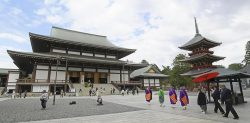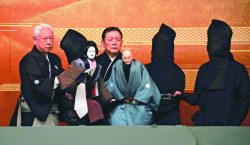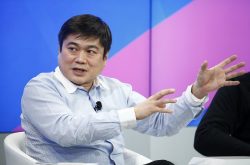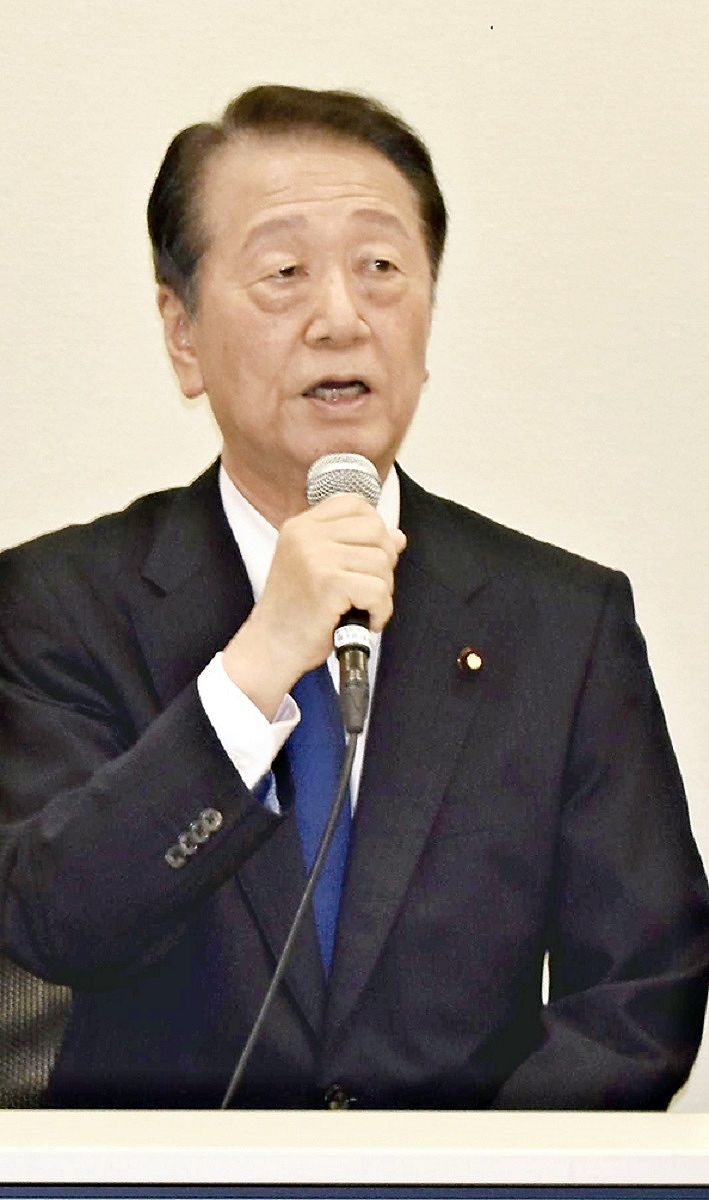
Ichiro Ozawa, a powerful member of the Constitutional Democratic Party of Japan, is stepping up his efforts to realize a change of government in the run-up to the party’s leadership election.
8:00 JST, August 10, 2024
The July general election in the United Kingdom, which brought the first change of government in 14 years, sent a shock wave through Japanese politics.
Kenta Izumi, the leader of the largest opposition party, the Constitutional Democratic Party of Japan, said that the Labour Party’s landslide victory over the Conservative Party and Keir Starmer’s inauguration as prime minister “gave us great courage.”
At the same time, Seiji Kihara, a member of the Liberal Democratic Party in the House of Representatives who supports Prime Minister Fumio Kishida, expressed a sense of crisis. “The change of government in the U.K. is happening at a time when the Conservative Party is in disarray and the Labour Party is moving toward the center. We should also learn a lesson from this,” Kihara said.
There are many similarities between the political situations faced by Kishida and Conservative former Prime Minister Rishi Sunak, who suffered a major defeat. With the economy stagnating and no improvement seen in the people’s living standards, they tried to restore their approval ratings — both languishing around 20% — through tax cuts and investment incentives. But in a further similarity, the effects of these measures were temporary and did not lead to a fundamental increase in their approval ratings.
In light of this situation, the CDPJ feels rising hope for the next House of Representatives election, believing there is a chance for a change of government for the first time since 2009. The biggest political issue facing the party ahead of the general election is the election of the party leader, which will be held in September, when Izumi’s current term expires. The person they choose will lead the party in the House of Representatives election to be held by autumn next year. So far, Izumi and former leader Yukio Edano have already indicated their intention to run.
Although he is not running for party leader, House of Representatives member Ichiro Ozawa is enthusiastic, saying in a speech, “The next House of Representatives election is the biggest and last chance for the opposition party to change the government.” He also praised Britain’s change of government, saying, “In the U.K., the people are keenly aware of the need to change the government at the moment, which is why it is a model for parliamentary politics.”
Ozawa, 81, has been a member of the Diet for over 50 years and is a powerful figure who played leading roles in two changes of government: the launch of the eight-party coalition led by Morihiro Hosokawa following the 1993 lower house election, and the 2009 election victory of the Democratic Party of Japan (DPJ) under Yukio Hatoyama. However, Ozawa caused both governments to collapse in a short time due to policy differences, earning him the nickname “the destroyer of politics.”
Ozawa became active regarding the upcoming party leader election before even the candidates themselves. At an early July press conference, he openly called for the current leader to step down, saying, “If Izumi becomes the leader [for another term], the party will sink again.” Since mid-July, he has met with former DPJ Prime Minister Yoshihiko Noda, who is now a CDPJ member. Also, Ozawa met with Edano in late July, with the two reportedly agreeing that a change of government is necessary.
The reason behind Ozawa’s early rejection of Izumi is that, although Ozawa led his own group in supporting Izumi in the last leadership contest and contributed to his election, Izumi did not reward Ozawa with a party executive position. On the other hand, Ozawa’s relationship with Noda evokes the concept that “yesterday’s enemy is today’s ally.” Noda was the prime minister who decided to raise the consumption tax in 2012, and Ozawa, who opposed the increase, gathered his close lawmakers and left the DPJ to form a new party.
Due to the internal divisions and the loss of centripetal force, the DPJ lost its power in the House of Representatives election immediately afterwards, suffering a crushing defeat to the coalition of the LDP and Komeito. There is speculation within the party that the rapprochement between Ozawa and Noda, who were seen as being at odds, could mean that the two will work together to topple Izumi as leader. Ozawa and Edano were also once at odds, with an antagonistic relationship at the time of the change of government in 2009, but their relationship is now thought to have been repaired.
However, there is a big gap in ideology between Noda and Edano, with whom Ozawa is in contact. While Noda is a centrist, Edano has strong support from the left. Ozawa has met with both men and is thought to be assessing who he should support in the leadership election.
To run for leadership, a candidate needs to be endorsed by 20 Diet members. Considering that there are only 136 CDPJ members in the House of Representatives and House of Councillors combined, it is a high hurdle. The group led by Ozawa has only about 10 members, but they are tight-knit and can be seen as a reassuringly solid group for candidates aiming to run.
However, some in the party are coldly opposed to Ozawa’s actions, saying that his goal may be to become a kingmaker and seize real power.
One of the biggest reasons why the DPJ government that was launched in 2009 ended after just three years was conflict between intraparty groups. (The CDPJ calls its members’ internal associations “groups” rather than factions.) There are six groups in the party, including conservatives and liberals. Although they belong to the same party, they have quite a few different positions on basic national policies such as security, consumption tax increases and the restart of nuclear power plants. The last time there was a change of government, this led to constant conflicts between the groups, and the government collapsed because it was unable to unify the different opinions within the party.
The CDPJ wants to achieve a change of government similar to the one seen in Britain, but there are two big differences between Japan’s CDPJ and Britain’s Labour Party. One is that the Labour Party had a high approval rating on its own. While the Labour Party’s approval rating before the general election was 40%, a July poll by The Yomiuri Shimbun showed that the CDPJ had only 12% approval, which is not high. In this situation, it is unlikely that the CDPJ will be able to win a majority on its own in the next House of Representatives election. Even if it wins a plurality of seats, a coalition government will be assumed.
Another point is that Starmer is said to have drawn a line on factional activities. Starmer is regarded as belonging to the party as a whole rather than to any faction, which earned him the reputation that his greatest strength for realizing his ideal — that the Labour party and its politicians could be a “force for good and a force for change” — is that he has a weak ideological color himself.
In contrast, there are voices within the CDPJ analyzing the current state of the party. Such voices are essentially saying: “This time, someone who can unite the different opinions within the party should become the leader. Instead of trying to make the numbers match up within the party, we need to make an effort to become united on important policies. Otherwise we will be far from achieving a change of government.”
Political Pulse appears every Saturday.
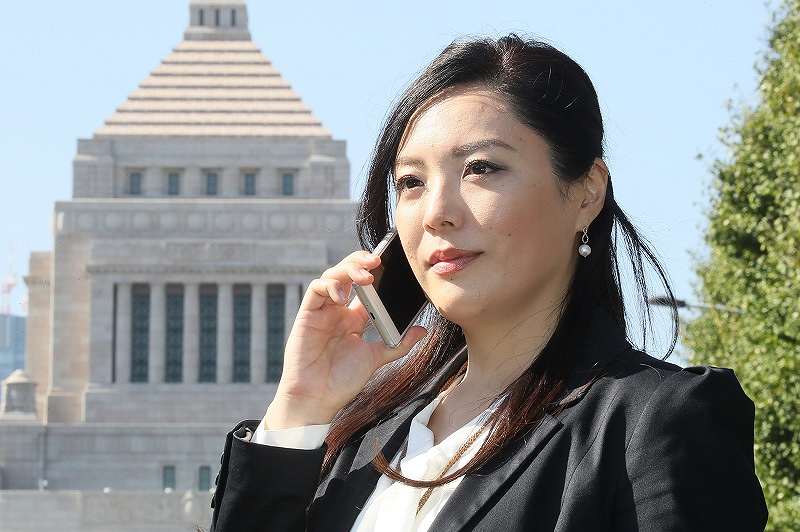
Yukiko Ishikawa
Yukiko Ishikawa is a deputy editor in the Political News Department of The Yomiuri Shimbun.
Top Articles in Editorial & Columns
-

Riku-Ryu Pair Wins Gold Medal: Their Strong Bond Leads to Major Comeback Victory
-

Reciprocal Tariffs Ruled Illegal: Judiciary Would Not Tolerate President’s High-Handed Approach
-

China Provoked Takaichi into Risky Move of Dissolving House of Representatives, But It’s a Gamble She Just Might Win
-

Japan’s Plan for Investment in U.S.: Aim for Mutual Development by Ensuring Profitability
-

Flu Cases Surging Again: Infection Can Also Be Prevented by Humidifying Indoor Spaces
JN ACCESS RANKING
-

Producer Behind Pop Group XG Arrested for Cocaine Possession
-

Japan PM Takaichi’s Cabinet Resigns en Masse
-

Man Infected with Measles Reportedly Dined at Restaurant in Tokyo Station
-

Israeli Ambassador to Japan Speaks about Japan’s Role in the Reconstruction of Gaza
-

Videos Plagiarized, Reposted with False Subtitles Claiming ‘Ryukyu Belongs to China’; Anti-China False Information Also Posted in Japan






